-
 Art of Wellness Acupuncture & Traditional Chinese Medicine (TCM)11704 Wilshire Blvd, Suite 295, Los Angeles, CA, 90025
Art of Wellness Acupuncture & Traditional Chinese Medicine (TCM)11704 Wilshire Blvd, Suite 295, Los Angeles, CA, 90025
myartofwellness@gmail.com310-451-5522 Office Hours
MonClosedTue7:30 am --4 pmWed7:30 am --4 pmThu7:30 am -- 4 pmFri7:30 am -- 4 pmSat7:30 am -- 4 pmSunClosedOur office opens from Tuesdays to Saturdays 7:30 am to 4 pm, will be closed on Memorial day, Independent day, Labor day, Thanksgiving day, Christmas and New year.
-
Recent Posts
- Chinese New Year 2026: Year of the Horse
- Acupuncture and TCM Treatment for Perimenopause Symptoms
- How to Treat Insulin Resistance With Acupuncture and TCM
- How to Treat Metabolic Syndrome With Acupuncture and TCM
- How to Treat Syncope With Acupuncture and TCM
- How to Treat Thoracic Outlet Syndrome With Acupuncture and TCM
- How to Treat Dupuytren’s Contracture With Acupuncture and TCM
- How to Treat Nutcracker Syndrome With Acupuncture and TCM
- How to Treat Rosacea With Acupuncture and TCM
- How to Treat Perioral Dermatitis With Acupuncture and TCM
- Lymphatic Drainage With Acupuncture and TCM
- How to Treat Turf Toe With Acupuncture
- How to Treat Nerve Pain With Acupuncture and TCM
- How to Treat Watery Eyes With Acupuncture and TCM
- How to Treat Ovarian Cysts With Acupuncture and TCM
- How to Treat Dystonia With Acupuncture and TCM
- Sign up to receive news and updates and get my free report:“The Top 10 Reasons to Try Acupuncture”

November 2025 M T W T F S S 1 2 3 4 5 6 7 8 9 10 11 12 13 14 15 16 17 18 19 20 21 22 23 24 25 26 27 28 29 30
Acupuncture
How to Treat Celiac Disease With Acupuncture and TCM
By Qineng Tan, L.Ac., Ph.D. & Xiaomei Cai, L.Ac., Ph.D.

Do you have digestive problems like a bloated stomach, diarrhea, and abdominal pain? Unintentional weight loss, fatigue, skin rashes? These can all be signs of Celiac disease. Different from food allergies, Celiac is a serious autoimmune disorder that can lead to malnutrition and other debilitating health problems. TCM herbs and acupuncture treatment offer a good alternative way of managing Celiac disease and gluten intolerance symptoms.
In recent years, you have probably heard a lot of people saying they are switching to a gluten free diet because they have a gluten allergy or gluten intolerance. Sometimes people may just be trying to see if they feel better when they cut out wheat products, or they are going on a low carb diet to help them lose weight. Other people may be experiencing symptoms like diarrhea and nausea and hope that going on an IBS diet will help.
What is gluten? Gluten is a protein that is present in some grains, including wheat, barley, and rye. When a person has Celiac disease, gluten is perceived by the immune system as a dangerous foreign substance, triggering an immune response. Antibodies (white blood cells) are produced as a reaction to gluten entering the body, and the antibodies end up causing inflammation and damage to the inside of the intestinal tract.
This damage to the small intestine is called villous atrophy, and this is what causes inflammation and malabsorption of nutrients, leading to the myriad symptoms of Celiac. Celiac symptoms vary widely, and can include both digestive problems, and other conditions, like anemia, that stem from the lack of proper nourishment to the body.

There is such a thing as a true wheat allergy, which for some people causes respiratory problems like difficulty breathing and nasal congestion, and other allergy symptoms like swelling and itching around the mouth and throat, hives or other itchy skin rashes, and headaches. Wheat allergies are a response to chemical compounds in wheat, which is found in a wide variety of food products. In some cases, exposure to wheat can cause anaphylaxis, which requires emergency medical attention because it can involve trouble breathing and swallowing, chest tightening, throat swelling, dizziness, and fainting.
Some doctors now recognize gluten intolerance or non-celiac gluten sensitivity as a separate condition from Celiac disease. For some people, gluten causes an immune response and symptoms, but not the same kind of damage to the intestines that Celiac does. If gluten intolerance is suspected, then following a gluten free diet for a period of time and noticing if symptoms clear up is usually the recommended course of action.
Celiac disease tends to run in families, and so is considered to be passed genetically. People can begin to show signs of Celiac at any age. It is estimated that at least 1% of the population has Celiac disease, but that number may be significantly higher, as it is still not a very well understood condition. Many people who have Celiac disease are unaware of it, or have been misdiagnosed with other conditions. Researchers believe that the incidence of Celiac disease is increasing worldwide, probably due to some environmental factors.
Acupuncture and TCM herbs provide a holistic way to treat Celiac disease, relieving the painful symptoms and providing detailed guidance for lifestyle and dietary changes that can help people manage Celiac and gluten intolerance. Nutrition is considered to be one of the primary branches of TCM, along with acupuncture and herbs. A TCM practitioner will be able to give you dietary recommendations far beyond just telling you to eat gluten free foods.
Top 10 Celiac Disease Symptoms
People can experience a variety of gluten intolerance symptoms, including digestive problems, allergy symptoms like skin rash, and other symptoms related to nutritional deficiency, like anemia and weight loss. Signs of gluten intolerance may be different in children, who are more susceptible to malnourishment that can lead to a failure to thrive.
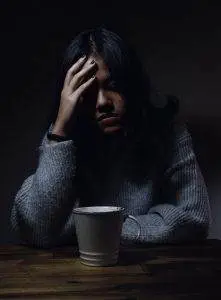
Celiac symptoms include:
- Fatigue
- Weight loss
- Diarrhea, pale colored stools, foul-smelling, fatty, greasy stool
- Abdominal bloating, bloated stomach, gas, stomach pain, abdominal pain
- Nausea, vomiting
- Constipation
- Headache, headaches, migraines, migraine headaches
- Skin rash, mouth ulcers, mouth sores, canker sores
- Neuropathy, numbness or tingling in hands and feet, problems with balance, joint pain
- Cognitive problems, foggy head, difficulty concentrating
Celiac can lead to SIBO, anemia, iron deficiency, loss of bone density (osteoporosis), weak bones, soft bones, bone loss (osteopenia), joint pain, or arthritis. People can also have liver problems, including fatty liver.
Dermatitis herpetiformis is a specific type of skin rash that causes itching and blisters to appear, primarily on the knees, elbows, torso, top of the head, and buttocks.
Women may find that celiac disease affects their hormones, menstrual periods, and can have an impact on fertility, even causing recurrent miscarriages.
Celiac disease can also contribute to infertility and low sperm count in men.
When a child develops celiac disease, the inability to absorb nutrients from food can cause problems with normal growth, such as short stature, delayed puberty, and damage to tooth enamel. Developmental disorders and behavioral issues can also be related to celiac, like ADD/ADHD and irritability.
In extreme cases, Celiac can cause seizures.
Celiac Disease Diagnosis and Treatment
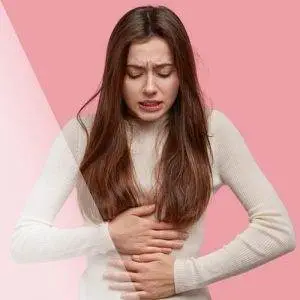
Going through the process of being diagnosed with Celiac disease or gluten intolerance is quite complicated and involves multiple tests. From the medical standpoint, it is best that you do not eliminate gluten or change your diet before the testing, so that it can accurately show how gluten is affecting your immune system and your intestines.
First, you will probably have a blood test that looks for certain antibodies that would indicate an autoimmune reaction to gluten. Some people may test negative for antibodies, and yet still have Celiac, though, so this blood testing is not enough to be conclusive. Genetic testing may be done, which looks for specific antigens to rule out Celiac. If testing shows that a person has antibodies, and they also have a specific type of skin rash (dermatitis herpetiformis), that is usually enough for a doctor to give an official diagnosis of Celiac disease.
Endoscopy is an imaging test which uses a little camera to see if there is damage to the intestinal lining. They will also take some tissue samples from the lining of the intestine to check for inflammation and damage. The results of these tests may lead to a formal Celiac diagnosis. People will often need to have an endoscopy to find out if they have Celiac disease, and then possibly repeated endoscopies to see if the inflammation is getting better or worse.
Sometimes people will try figuring out what is going on themselves with a food sensitivity test or food intolerance test kit that you can do at home and send in for results. Food allergy testing may give you some information as to whether you have a reaction to a specific allergen (egg allergy, milk allergy, peanut allergy, shellfish allergy) or have a food sensitivity, but they cannot tell you if you really have Celiac disease or gut inflammation.
Going through the diagnostic process for autoimmune diseases like Celiac disease can be exhausting in and of itself. Meanwhile, you aren’t yet getting treatment for your symptoms. The only treatment available in conventional medicine for Celiac disease really is to follow a gluten free diet. Most doctors are not able to do much beyond give you a list of foods you shouldn’t eat, or refer you to a dietitian.
TCM has the ability to provide more comprehensive care for people with Celiac disease, and many other autoimmune conditions. Acupuncturists are highly trained professionals when it comes to offering patients detailed guidance for following an effective Celiac disease diet.
Can Acupuncture Help Celiac Disease and Gluten Intolerance?

TCM has more to offer than just acupuncture treatment and herbal medicine. Nutrition is one of core competencies every TCM practitioner must master.
Acupuncture treatment can help relieve digestive symptoms like abdominal pain and bloating, and also have a positive impact on the system malfunctioning that leads to autoimmune reactions. With Chinese herbs, we are able to get very potent nutrients into the body that wouldn’t normally come from food. For people with Celiac, or other problems like food allergies or sensitivities, malnutrition due to malabsorption is a real problem.
A TCM nutrition approach can help restore the body’s health with foods and herbs better than a simple elimination diet for Celiac disease can. An acupuncturist listens carefully to the particular symptoms and sensations you describe. These provide important clues as to which organ systems are involved, and where yin and yang are out of balance. Then TCM provides a framework for tailoring the treatment and food plan for Celiac disease to each individual’s needs.
According to TCM theory, the stomach and spleen are responsible for digesting food. Celiac disease symptoms are, according to a typical TCM diagnosis, related to a spleen deficiency. When Qi in the spleen is weak, the body is not getting the nutrients it needs. Building up the strength of the spleen will often be the focus of the acupuncture portion of the treatment. Herbs and specific nourishing foods will be recommended, which will help anemia and soothe the digestive tract.
Acupuncture Near Me For Celiac Disease, West Los Angeles
Autoimmune diseases like Celiac disease can be especially frustrating because they seem to take over your whole life. Not only physical health, but mental health is compromised. Treatment options are limited. Fortunately, TCM offers a complementary form of medicine that is able to provide multi-faceted care for autoimmune disorders like Celiac, including: Crohn’s disease, Type 1 diabetes, hyperthyroidism, Lupus, rheumatoid arthritis, fibromyalgia, and multiple sclerosis (MS). Acupuncture treatment can help reduce feelings of anxiety and depression as you learn to manage your illness.
If you or someone you know has been suffering from digestive issues, and you suspect it may have something to do with gluten intolerance or Celiac disease, be prepared to go through testing, but also give some thought to adding a TCM provider to your health care team. At Art of Wellness, we have over 35 years of providing excellent care through TCM treatments, including expert nutrition services. It is like getting an acupuncturist and dietitian in one.
*This article is for education from the perspective of Traditional Chinese Medicine only. The education provided by this article is not approved by FDA to diagnose, prevent, treat and cure human diseases. It should not stop you from consulting with your physician for your medical conditions. Traditional Chinese Medicine is based on Qi, which is an invisible force that usually cannot be observed by modern science. Because science focuses on testing ideas about the natural world with evidence obtained through observation, these aspects of acupuncture can’t be studied by science. Therefore acupuncture and Chinese herbs are often not supported by double-blind, randomized trials, and they are considered alternative medicine therapies in the United States.
How to Treat Addiction With Acupuncture and TCM
By Qineng Tan, L.Ac, Ph.D. & Xiaomei Cai, L.Ac., Ph.D.

Are you, or is someone you love, struggling with alcohol addiction or some other substance abuse problem? Alcoholism, drug addiction, and other issues like porn addiction problems or food addiction can be helped with TCM treatment. Acupuncture for addiction can help people overcome the physical symptoms of alcohol withdrawal, and help them deal with the mental and emotional aspects of substance abuse recovery.
Drug use, drinking, and smoking are behaviors that are widely practiced and deeply ingrained in our modern society. If we consider tobacco smoking and alcohol consumption in addition to “harder” drugs, then over 60% of the population uses some type of addictive substance on a regular basis.
Substance use disorders (SUDs) are a major health concern worldwide. It is estimated that over 20 million Americans are currently suffering from some type of addiction to drugs or alcohol. While addiction can happen to people of all ages, young people are especially at risk for substance abuse. When teens and young adults start binge drinking or abusing drugs, it can have a serious effect on their brain development and increase their chances of developing a substance abuse problem.
More recently, the surge of opioid use has dramatically increased the number of people who are dangerously dependent on prescription painkillers or deliberately misusing opioid medications like fentanyl or Oxycontin. People can become addicted to opioid medications in a short period of time. Accidental overdose is one of the leading causes of death in the U.S., which has contributed to the recent decline in average life expectancy.
Even moderate drinking and use of recreational drugs can affect a person’s overall health, sleep habits, and fertility. There are many benefits to reducing your alcohol consumption, or choosing to go through an alcohol detox or a designated period of sobriety, like “Sober October” or “Dry January.” A TCM herbal detox with acupuncture treatment can help improve your vitality and get rid of nagging health issues.
If you know you have a serious problem with addictive behaviors, though, you will probably need some sort of treatment and support system to help you get sober and recover physically and mentally from substance use disorder.
What Causes Addiction?

When we talk about addiction, we are usually referring to the relationship of the body and mind to psychoactive substances such as: alcohol, nicotine, marijuana, heroin, cocaine, amphetamines, methamphetamine, hallucinogens, etc. The chemical composition of these substances causes them to have a profound effect on the brain chemistry of human beings.
Unfortunately, many drugs that are prescribed by doctors to help relieve pain and other symptoms of illness are habit-forming, too. When people try to stop taking the medication they’ve been using to help with post-surgical pain, for example, or to help them sleep, or to relieve situational depression and anxiety, they find they can’t just “quit.”
Even “milder” substances like caffeine and sugar, which many people consider to be a regular part of their daily diet, can be abused to the point that they become detrimental to your health. And, of course, we all know how hard it is for people to quit smoking. Nicotine is one of the most addictive substances out there.
Most of these drugs affect the way the brain produces dopamine and other neurochemicals. When you stop drinking or using the drug, the brain is not ready to go back to its old ways of creating and releasing dopamine. There is a period of adjustment, during which symptoms of withdrawal can make a person very uncomfortable, or even violently sick.
Certain behaviors, like scrolling through social media websites on your phone, or looking at pornography, or even engaging in sexual activity, can also be addictive because of the way they impact dopamine production and other brain activity.
There has been a lot of shame and stigma attached to alcoholism and addiction. Sometimes, people live in denial of the fact that they are too heavily reliant on drinking or using drugs to help them cope with stress. Alcohol abuse or drug abuse are still considered by some people to be personal problems, having to do with a lack of willpower or gratitude.
We now understand that addiction is a disease, and that it can be difficult and actually dangerous for people to try to stop using some drugs without some form of treatment. Doctors and mental health professionals are trained to help people safely recover from substance abuse, and treatments exist to provide relief from drug withdrawal symptoms. In addition to the 12 step program Alcoholics Anonymous, which provides emotional support through group interactions, many other clinics and rehab centers provide care for those trying to stop using drugs and alcohol.

Still, most people find that recovering from addiction is extremely difficult, probably the hardest thing they have ever tried to do. Many people, no matter what kind of treatment they receive, or how many times they go through a 12 step program, still relapse. First a person needs to decide that they are ready to commit to recovery. Then, finding the right support is crucial to success.
TCM methods of acupuncture and herbs offer an alternative or adjunctive treatment for addiction. Acupuncture treatment has been shown to help patients suffering from alcoholism and depression, reducing cravings and symptoms of withdrawal and improving mental health.
Acupuncture can help people overcome substance abuse, addressing both the physical effects of drug use with an effective alcohol detox or drug detox, and the emotional problems most people face when they begin recovery treatment.
Top 10 Symptoms of Withdrawal from Alcohol Dependence and Drug Abuse
Withdrawal is the body’s reaction when a person stops using drugs or alcohol after having been ingesting them regularly for a significant period of time. When the body and brain have become addicted to a substance, the physical and emotional need for that substance can cause a severe reaction when a person stops abruptly, making it very difficult for a person to resist using again. Withdrawal symptoms can vary, depending on what type of substance you’ve been using, and how long you’ve been using it.
Symptoms of withdrawal include:
- Tremor, hands shaking, body shaking, seizures
- Anxiety, depression, agitation, feeling jumpy, irritability, delirium, hallucinations
- Watery eyes, tearing, runny nose
- Hot flashes, chills, hot flushes, hot and cold, sweating, clammy skin
- Nausea, vomiting, diarrhea
- Muscle cramps, muscle aches, muscle pain, muscle tension
- Dehydration
- High blood pressure, fast heartbeat, irregular heartbeat, palpitations
- Anxiety, depression, overwhelming negative emotions
- Insomnia, trouble sleeping, restlessness
Other signs of withdrawal can include: trouble concentrating, memory loss, foggy headedness, pupils dilated, loss of appetite.
Some medical detox programs are designed to help people gradually taper their use of drugs like amphetamines or sleep medications so as to minimize withdrawal symptoms. Treatment centers, such as a methadone clinic, may use certain approved medications to help relieve cravings when people are coming off of heroin or prescription pain medications.
Acupuncture, a TCM detox program, and other TCM treatments can serve as an alternative or adjunct treatment to help alleviate withdrawal and help people survive through the toughest parts of recovery.
Top 5 Ways Acupuncture Can Help Addiction

The relationship between Chinese medicine and alcohol goes back many centuries. As early as 1600 B.C., we have records of alcohol being used in medicinal preparations and for its anesthetic properties. Problems with overuse of alcohol, however, are also a longstanding part of Chinese culture, so TCM has developed treatments to help people reduce their consumption of alcohol.
According to TCM philosophy, too much alcohol creates excessive heat in the body, and disturbs the balance of Yin and Yang. In conventional medicine, the focus tends to be on how alcohol abuse impacts the liver. In TCM, we see that binge drinking also taxes the stomach and spleen, and encourages dampness to take hold. Thus, acupuncture treatment for alcohol addiction will often focus on clearing heat and dampness from the organ systems, while strengthening the stomach and spleen.
TCM takes a holistic approach to treating Substance use disorders, meaning we focus not only on the physical symptoms of withdrawal, but also on the emotional, mental, and spiritual problems associated with addiction.
Most people become dependent on drugs or alcohol because they are already experiencing some form of emotional struggle or mental health issue. When the substance is taken away, those feelings come up to the surface again, demanding attention. For many people, the anxiety and depression they face when they quit drinking or using drugs is overwhelming.
Some people may avoid 12 step programs, an AA meeting, alcohol rehab, drug addiction centers for substance use disorders, or even one-on-one talk therapy because they are not ready to talk about the trauma that triggered their anxiety or depression. Acupuncture treatment can be very helpful for anxiety and depression, without having to delve into these conversations.
TCM treatment for addiction works on multiple levels:
- Detox – TCM has a history going back for many centuries of actively seeking to remove toxic substances from the body to improve both physical and mental health. The practice of using Chinese herbs used in combination has been developed to be highly effective as a detox from all kinds of drugs. A TCM detox treatment program uses acupuncture treatment as well as herbs taken internally (as a tea or capsule) and used externally (detox patches) to draw toxins from the body, providing a deep cleansing for the liver and other organ systems.
- Reduces cravings – whether the problem is nicotine, alcohol, opiates, food, or some behavior like engaging with porn, the use of auricular acupuncture and applying pressure to acupressure points on the head and ears for cravings can be very effective.
- Withdrawal Symptoms – Acupuncture has been shown to help people with symptoms of opioid withdrawal, heroin withdrawal, and prevent relapses.
- Mental Health – people who were treated with acupuncture for addiction reported that it helped them feel more confidence in their ability to quit. Acupuncture helps relieve anxiety and the negative effects of stress.
- Sleep aid – many people start using drugs in the first place because they have trouble sleeping. When people quit drinking and using drugs, they can suffer from insomnia and restlessness. Acupuncture is an excellent modality for helping people to relax and experience deeper, higher quality sleep.
Acupuncture has been shown to have an effect on neurotransmitters like dopamine and serotonin, which are involved in the brain processes that make certain substances so addictive.
Several types of Chinese medicines based on herbal formulation have been tested and approved for treatment of opiate addiction in China.
Studies have shown that electro-acupuncture, and auricular acupuncture can reduce cravings, and alleviate anxiety related to drinking cessation.
Acupuncture for Addiction Treatment Near Me in Los Angeles Area
Addiction can be devastating for individuals and their loved ones, but substance abuse and other kinds of addictions can be overcome with time, dedication, and the right treatment plan. At Art of Wellness, we are ready to become part of your support team, providing consistently excellent health care through acupuncture and herbs, as well as being there for you when you need emotional support. We want our patients to think of our clinic as a second home, where they can find peace and strength to help them overcome their substance use disorder.
*This article is for education from the perspective of Traditional Chinese Medicine only. The education provided by this article is not approved by FDA to diagnose, prevent, treat and cure human diseases. It should not stop you from consulting with your physician for your medical conditions. Traditional Chinese Medicine is based on Qi, which is an invisible force that usually cannot be observed by modern science. Because science focuses on testing ideas about the natural world with evidence obtained through observation, these aspects of acupuncture can’t be studied by science. Therefore acupuncture and Chinese herbs are often not supported by double-blind, randomized trials, and they are considered alternative medicine therapies in the United States.
How to Treat Essential Tremor With Acupuncture and TCM
By Qineng Tan, L.Ac, Ph.D. & Xiaomei Cai, L.Ac., Ph.D.
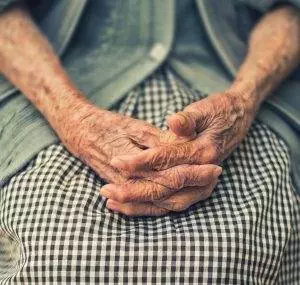
Shaking hands, body shaking for no reason, head shaking, feel wobbly when you’re walking, maybe your voice quivers when you speak? These could be signs of Essential Tremor (ET). Essential tremor is a neurological condition, often mistaken for Parkinson’s disease, which causes rhythmic shaking of parts of the body, especially the hands. Acupuncture and TCM are an effective way to treat symptoms of essential tremor.
Essential Tremor (ET), also called “kinetic tremor” or “benign essential tremor,” is a chronic nervous system disorder that causes hand tremors, trembling hands, head shaking, body tremors in the arms or legs, and can also affect the voice. The hand shaking most often happens when you try to perform some simple, yet specific task that requires coordinated movements or using tools, such as shaving, writing, or pouring liquid into a glass.
Essential tremor is the most common type of movement disorder, affecting about 4% of older adults, although it can happen at any age. The causes and progression of ET are not fully understood by medical science.
Tremors are categorized into two main types of tremors: resting or active. A resting tremor is when the body shakes even at rest. Active tremors are when there is shaking when a person is attempting to make voluntary movements. Essential tremor is a type of active tremor.
“Postural tremor” refers to an active tremor that occurs when a person is trying to maintain a position, like standing with the arms outstretched, and cannot do it without shaking. An “internal tremor” is a person’s feeling that a quivering or shaking sensation is taking place inside their body, that cannot be seen by others.
Essential tremor is often misdiagnosed as Parkinson’s disease, but, in fact, essential tremor is much more common than Parkinson’s (20 times more common). Like Parkinson’s, essential tremor causes hand shaking, but ET is different in that symptoms usually occur when you’re actively trying to do something, whereas Parkinson’s tremor occurs even when your limbs are at rest. Parkinson’s also typically involves non-motor symptoms as well as motor symptoms.
Other conditions can also cause hand tremors. Vascular parkinsonism, a neurological disorder that is the result of small strokes, causes blockage of blood flow in the brain. Both Parkinson’s and vascular parkinsonism can cause a distinct type of tremor that involves the thumb and fingers brushing together slowly, sometimes called a “pill-rolling tremor.” Asterixis is another kind of motor control disorder that causes muscles to jerk, resulting in a characteristic hand-flapping gesture, sometimes referred to as “liver flap.”
There are many other conditions that can also cause tremors, including: hyperthyroidism, multiple sclerosis (MS), stroke, liver or kidney disease, and alcohol addiction. Anxiety or panic attacks can also cause a temporary tremor or shakiness.
Essential tremor seems to run in families sometimes, but many people begin to experience tremors for no apparent reason. It is theorized that ET may be caused by something genetic, or it may be caused by neurodegeneration–the gradual degradation and death of cells in the brain.
Acupuncture, combined with other TCM modalities such as moxibustion and herbs, is a good method for reducing hand tremors and other symptoms of essential tremor, as it has been demonstrated to have positive effects on the generation of cells in the brain and nervous system, as well as reducing stress and anxiety.
Top 5 Essential Tremor Symptoms
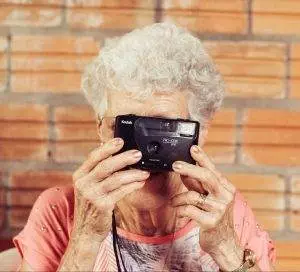
Very mild symptoms of essential tremor, such as having trouble threading a needle, often begin to show up when a person is in their 40s. Then, as time goes on, the symptoms of ET become more obvious:
- Tremor, especially in hands, that is most noticeable when you’re trying to do something
- Head nodding that you can’t control
- Shaking on one side of the body more than the other
- Voice quivers or voice is shaky when you speak
- Tremor gets worse over the years
Some medications (amphetamines, corticosteroids, or asthma medications) or stimulants like caffeine may make the tremors more noticeable. Some people find that the tremor lessens when they drink a moderate amount of wine or other alcohol. Stress, strong emotions, too much exertion, low blood sugar, or being dehydrated can make the tremor more pronounced.
Essential Tremor Treatment
There is no specific test that shows whether a person has essential tremor. Diagnosis is based on observation of symptoms, and the use of testing to rule out other disorders, such as thyroid disease or Parkinson’s.
Medications are used to treat tremors with varying levels of success. Propranolol and Atenolol are beta-blockers that can be helpful for some people with ET. Primidone or Topamax are anti-seizure (anti-epileptic) drugs that can also be prescribed to help relieve shaking. In many cases, these medications are not very helpful for relieving the tremors. Doctors may try anti-anxiety medications like Valium, Ativan, or Klonopin. Botox injections have also been tried as a medical treatment for essential tremor.
In some cases surgery to remove parts of the thalamus has helped stop severe tremors, but there is a high risk with this type of brain surgery. Nowadays, when drugs do not seem to provide relief from tremors, people may be referred for a thalamic deep brain stimulation therapy, in which electrodes send an electrical impulse to the brain to interrupt the faulty signals leading to involuntary shaking.
Acupuncture treatment is another way to stimulate brain activity, having a positive effect on neurotransmitters in the brain and reestablishing connections throughout the nervous system.
Can Acupuncture Help Essential Tremor?

According to TCM theory, the symptom of hand tremors generally originates from the liver and kidney systems. Liver blood deficiency and kidney deficiency are closely related, and can lead to rising Liver Yang, and Liver Wind. It is the pathogenic factor of wind that causes the hand shaking. We use acupuncture treatment and herbs to nourish the liver and kidney so that wind is subdued and yin and yang energies are balanced.
One study compared groups of people with ET who were treated with medication (Propranolol) versus patients treated with both acupuncture and medication. The results showed better results for the patients who received the combined therapies.
A hospital study in China showed that a combination of acupuncture treatment and herbal formulation had an over 80% efficacy rate for patients with benign essential tremor.
A recorded case study of a woman treated with acupuncture for tremor showed that she was better able to write and hold objects, and that the improvements were maintained even a year after she had completed acupuncture treatment.
Best Exercise for Hand Tremors
Regular exercise is important for everyone, especially as we age, in order to keep our physical and mental faculties strong and agile. Exercises that can be beneficial for people with essential tremor include:
- Regular cardiovascular exercise and light strength training
- Tai Qi
- Yoga
- Meditation
- Puzzles, math games, brain teasers, word searches, etc.
Acupuncture Near Me for Essential Tremor in West Los Angeles, Brentwood area
If you’ve started to notice your hands shaking, voice trembling, or that you’re feeling unsteady on your feet, don’t wait until the situation gets worse. Acupuncture treatment can help reduce the frequency and severity of hand tremors, and prevent essential tremor from progressing. The TCM doctors at Art of Wellness have over 35 years of experience treating all kinds of neurological disorders and helping people maintain their quality of life as they get older.
*This article is for education from the perspective of Traditional Chinese Medicine only. The education provided by this article is not approved by FDA to diagnose, prevent, treat and cure human diseases. It should not stop you from consulting with your physician for your medical conditions. Traditional Chinese Medicine is based on Qi, which is an invisible force that usually cannot be observed by modern science. Because science focuses on testing ideas about the natural world with evidence obtained through observation, these aspects of acupuncture can’t be studied by science. Therefore acupuncture and Chinese herbs are often not supported by double-blind, randomized trials, and they are considered alternative medicine therapies in the United States.
How to Treat Oligospermia With Acupuncture and TCM
By Xiaomei Cai, L.Ac., Ph.D. & Qineng Tan, L.Ac., Ph.D.
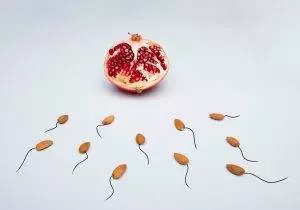
If you and your partner have been trying to get pregnant but it hasn’t happened yet, maybe you are concerned that it could be due to male infertility, or low sperm count, also known as Oligospermia. Male factor infertility is an issue in 40-50% of cases when a couple is having trouble conceiving. Acupuncture and TCM herbs offer a male infertility treatment that can help improve sperm production, increase sperm count, and help men produce healthy sperm.
Infertility in men is more common than you might think. Statistics show that infertility increasing worldwide is an issue, as many couples are having trouble conceiving. Roughly one in ten couples find that they are not able to get pregnant without some form of fertility treatment. Most men don’t know they may have this problem until they are trying to get their partner pregnant and things aren’t working. When couples go in for a female and male infertility test, about half of the time they find that male fertility is compromised. The cause of infertility in male can be due to many variables, so it may take more testing to discover why there is a problem. In many cases, infertility in men and women is never fully explained medically.
You can take a sperm count test at home, but that doesn’t tell you the whole story. A fertility test for men, or semen analysis, performed through a doctor will give you more information about sperm motility, sperm shape, the concentration of sperm in your semen, the Ph balance of the semen, and other details that may help to determine if there is a problem with male factor infertility. Other, more specific tests can show: swimming speed and direction, whether there are antisperm antibodies (ASAs) present, the sperm’s effectiveness at breaking through the outer wall of an egg, etc. Of men who are experiencing problems with infertility, about ten percent have azoospermia, which means a sperm count of zero, or no sperm in the semen. This can happen due to genetic conditions, radiation or chemotherapy treatments, use of some drugs, or anatomical abnormalities.
One of the most common causes of infertility in men is varicoceles, which are swollen veins in the testicles, similar to varicose veins. Varicoceles are not always noticeable, and often don’t cause any problems. However, they can block proper blood flow in the testicles, cause the temperature of the scrotum to rise, and have a negative impact on sperm production. This condition can be treated with surgery to repair the veins, or redirect blood flow to healthier veins.
Perhaps you have already heard about how beneficial TCM treatment can be for infertility in women, but you may not know that acupuncture for male infertility is also effective, whether used as an adjunct to ART (assisted reproductive technologies) treatment for male fertility, or as an alternative to conventional medical treatment. In the case of varicoceles, for example, studies have shown that men treated with acupuncture showed similar improvement in sperm motility and quality to men who had had minimally invasive surgery to help repair varicoceles.
Acupuncture treatment works on many levels, helping to improve blood circulation, reduce inflammation, cool excess heat, boost testosterone and erectile function, as well as helping to optimize overall health by reducing the effects of stress and anxiety, and improving sleep.
Top 10 Cause of Low Sperm Count

Problems with low sperm count and low sperm motility can be related to underlying health issues, or in some cases, lifestyle habits that may affect sperm production.
- Varicocele – swelling in the blood vessels in the testicles that has a negative impact on sperm production and sperm quality.
- Infections – some illnesses, like mumps, or sexually-transmitted diseases, like gonorrhea or HIV, can cause inflammation, damage, and/or scarring in the testicles that can affect sperm health or the mechanical release of sperm from the testicles.
- Ejaculation problems – chronic health conditions like diabetes, the use of blood pressure medications like alpha-blockers, or injury to the urinary tract or spine, can cause problems with the process of sperm being mixed with semen from the prostate and exiting the body through the penis. Retrograde ejaculation, for example, means that semen and sperm are going into the bladder instead of being expelled through the penis during ejaculation. Erectile dysfunction (ED) can also be an issue.
- Immune Infertility – autoimmune disorders can cause antibodies (antisperm antibodies, or ASA) to mistakenly attack sperm as if they were foreign bodies. This can happen in both men and women. (If a woman is producing ASAs, they attack the sperm when they enter the female reproductive system.) Some men who have had a vasectomy begin to develop these antibodies, and then, even after reversal of the vasectomy (vasovasostomy), they still have male infertility issues.
- Blocked tubes – several sets of tubes are involved in proper functioning of the male reproductive system and the male urinary system. If any of these tubes (the vas deferens, epididymis, seminal vesicle, urethra) are blocked, due to infection, inflammation, scarring, or other damage, it can affect sperm making it into the semen and out of the body during ejaculation. BPH and other prostate problems can cause inflammation in this area.
- Hormone imbalance – low testosterone levels or imbalances in levels of FSH and LH, hormones can cause low sperm production.
- Undescended testicles – a small number of male babies are born with one or both testicles that have not descended into the scrotum. In some cases, the testicles will descend within a few months on their own; in other cases, surgery is performed to correct the problem. If a boy grows into adulthood with his testes undescended, it can affect male fertility.
- Cancer or other tumors – a tumor or imbalance in hormones due to cancer (testicular cancer, prostate cancer, or bladder cancer) can disrupt sperm production. Side effects of cancer treatments like radiation, chemotherapy, and hormone therapy can also slow down sperm production or stop it. These side effects can also affect libido and sexual function.
- Chromosomal defects – several genetic disorders can cause infertility in men due to chromosomal abnormalities (Noonan’s syndrome, Cystic fibrosis, Kleinfelter syndrome)
- Celiac disease – While there has only been limited research done thus far, there have been some connections made between male infertility and celiac disease, which is a type of autoimmune disorder. One study suggested that a gluten-free diet helped men with celiac disease to increase sperm count.
Other things that can impact sperm count and sperm motility include the use of recreational drugs like marijuana, opiates, hormone supplements meant to boost testosterone, or anabolic steroids taken to build more muscle mass. Medications used to treat autoimmune disorders, like IBDs, Crohn’s disease, etc., can also affect male fertility.
How to Increase Sperm Count – Medical Treatments

Medical treatment and ART for male infertility depends first on testing to get as clear a diagnosis as possible. If it seems like some infection is causing problems, antibiotics may be prescribed, although in some cases, an extended infection may have already done some damage to the organs involved. If hormone imbalance is the problem, medications that alter the balance of FSH and LH, hormones crucial to sperm production, may be used, including estrogen receptor blockers, or human chorionic gonadotropin. As previously mentioned, surgeries to repair varicoceles can help to restore fertility.
In many cases, though, the exact cause of male infertility is not known. Male infertility is a complex health issue. The physical mechanics of sperm production, erectile function, and ejaculation are all important. It is important to acknowledge that these forces are closely connected to a man’s mental health and emotional health. If there is a lot of stress around trying to get pregnant, stress about having sex, stress in the relationship, or many other issues that may come into play, then the stress itself can have a real impact on sexual function and sperm production. Acupuncture and TCM is a good treatment method to address all of these physical and emotional issues at the same time, without unwanted side effects.
Can Acupuncture Help Male Infertility and Oligospermia?
First, let’s make it clear: acupuncture treatment for low sperm count is not going to involve needles being placed anywhere near the scrotum or penis. Acupuncture works on a subtle level and is relatively painless. Patients usually find it relaxing, and often take a nap during the treatment.

According to TCM theory, both blood and Qi need to flow smoothly throughout the channels of the body, nourishing the organs, for there to be optimal health. This is particularly true when it comes to promoting good reproductive health. Sperms must be ready to move through both the man’s reproductive system and the woman’s reproductive system, penetrate an egg, and start a new life. In order for healthy sperm to be produced, there needs to be a lot of blood and energy flowing to the testicles, where sperm are created.
In TCM, dampness and phlegm are often the causes of blockages. Acupuncture treatment focuses on improving blood flow, not only to testicles, but also to the kidneys and liver. TCM theory considers the kidney to be the keeper of a person’s “essence.” Essence is the life material that we inherit from our parents and pass on to our children. The kidneys are also considered to be responsible for the regulation and transformation of fluids in the body. Strengthening the kidneys, clearing heat, phlegm, and dampness from the organs, and nourishing the blood and Qi are the main focus of acupuncture treatment for low sperm count.
Nutrition, diet, exercise, stress reduction, adequate sleep, and other lifestyle habits are important factors in treating low sperm count. Your acupuncturist near me will go over the details in order to help you choose foods that boost fertility and adjust your routines so that they are most beneficial for infertility.
It helps to realize that sperm take about two to three months to mature, so acupuncture, herbs, and changes in lifestyle, as part of a holistic treatment regimen, need to be given adequate time and commitment to take effect.
One study confirmed that scrotal temperature and sperm count were improved in a significant number of men treated for oligospermia with acupuncture.
A study measuring sperm maturity and functionality found that patients treated with acupuncture for five weeks showed an increase in sperm function at the end of the five weeks, and then scored higher for sperm function again five weeks after treatment had ended.
Another study looked at acupuncture for low sperm motility and found that acupuncture helped increase sperm motility in a significant number of men.
Chinese herbs have been shown to have a positive effect on balancing FSH and LH levels.
Acupuncture Near Me for Oligospermia in Los Angeles
Dealing with male infertility due to low sperm count can be frustrating and stressful. It’s important that you and your partner put together a team of supportive health care providers who are also experts in the field of infertility treatment. At Art of Wellness, we have over thirty-five years of experience providing the very best in integrative care for infertility. We have worked with many of the top ART providers in Los Angeles, providing adjunctive care for couples going through fertility treatment.
*This article is for education from the perspective of Traditional Chinese Medicine only. The education provided by this article is not approved by FDA to diagnose, prevent, treat and cure human diseases. It should not stop you from consulting with your physician for your medical conditions. Traditional Chinese Medicine is based on Qi, which is an invisible force that usually cannot be observed by modern science. Because science focuses on testing ideas about the natural world with evidence obtained through observation, these aspects of acupuncture can’t be studied by science. Therefore acupuncture and Chinese herbs are often not supported by double-blind, randomized trials, and they are considered alternative medicine therapies in the United States.
How to Treat Meniere’s Disease With Acupuncture and TCM
By Qineng Tan, L.Ac., Ph.D. & Xiaomei Cai, L.Ac., Ph.D.

My ear feels clogged sometimes, I get sudden dizzy spells, and sometimes I think I’m losing hearing in one ear! These symptoms could be signs of Meniere’s disease, a condition of the inner ear that causes ringing in the ears or buzzing sounds, sudden hearing loss, and vertigo–that spinning sensation sometimes accompanied by nausea. Acupuncture is an effective vertigo treatment and can help resolve the dizziness and hearing problems associated with Meniere’s.
A lot of people may not realize that they have Meniere’s disease, because the most common symptoms can also be indicators of many other health issues. For example, sudden attacks of vertigo can be caused by a condition called benign paroxysmal postural vertigo, or BPPV. BPPV is another kind of inner ear problem, caused by the movement of small crystals of calcium carbonate into a part of the ear canal where they do not belong. Vestibular migraine and other types of migraine headaches can cause feelings of vertigo and ringing in the ears. Ringing in the ears, also known as tinnitus, can also be a symptom of a sinus or ear infection, thyroid problems, cardiovascular problems, or caused by repeated exposure to excessive noise levels.
Meniere’s disease is a chronic condition that can begin at any time during life, but it is most commonly diagnosed when a person is in their 40s or 50s. Most of the time, Meniere’s symptoms only affect one ear. A “Meniere’s attack” can come on in a way that is similar to a migraine. First there may be subtle signs that it is starting, like changes in hearing, or a feeling of fullness or congestion in one ear. Then, a sudden and strong attack of vertigo can make you feel so dizzy, light-headed, and off balance that you have to lie down. You may even feel nauseated to the point of vomiting. These episodes of intense dizziness can last anywhere from several minutes to several hours, or even a whole day. Afterwards, you may feel exhausted and need to rest. Never knowing when you might have one of these attacks of severe vertigo can be very disruptive and unsettling, really having a negative impact on your life.
Each person’s experience of Meniere’s disease is different, and there is no clear cause for the disorder. Over time, some people may have fewer and fewer symptomatic episodes, while other people may have them more frequently and may begin to develop more serious hearing problems. Hearing loss associated with Meniere’s disease may seem to come and go at first, but it can progress to the point of permanent hearing loss, or deafness.
What causes Meniere’s disease? Medical science is unclear as to why some people develop this inner ear problem, but it is generally believed to be related to excess fluid in the ear. Meniere’s symptoms might develop after some type of head injury or ear infection, respiratory infection, or viral infection. Meniere’s may be related in some cases to migraine headaches, or to immune system dysfunction. Some women experience Meniere’s symptoms during their premenstrual syndrome (PMS) week. As with many other illnesses, Meniere’s can be triggered by stress or anxiety. Currently, Meniere’s treatment typically involves medications that offer some symptomatic relief, like anti-nausea medications.
Acupuncture and other TCM treatments for Meniere’s disease offer a holistic way to address the varying symptoms of dizziness, vertigo, nausea, tinnitus, and hearing loss. While there is no cure for Meniere’s, it is possible to reduce the symptoms so that they are not so bothersome anymore and even to help prevent further hear loss.
Top 5 Symptoms of Meniere’s Disease
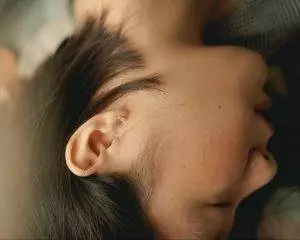
Meniere’s symptoms can be subtle at first, and a person may only have a few episodes of ringing in ear or vertigo once in a while. The common signs of Meniere’s include:
- Dizziness, vertigo, spinning sensation, light-headed
- Hearing loss, hearing problems, sudden drop in hearing, sounds are muffled
- Tinnitus, ringing in the ears, buzzing sound, roaring in ear
- Sensation of fullness in the ear, ear feels plugged up or congested
- Nausea, feeling like you’re going to be sick or vomit
In some cases, people with Meniere’s can have sudden falls, sometimes called “drop attacks,” or Tumarkin’s otolithic crisis. You may feel like you’re falling, or the room is tilting around you, and the next thing you know, you’re on the floor. These falls are unpredictable and can cause injuries.
Medical Treatment for Meniere’s Disease
One of the common treatments for Meniere’s vertigo, ringing in the ears, or a sensation of fullness in the ears is the use of diuretics like Lasix, Diamox, or Dyazide, following the logic that they will help reduce the amount of fluid in the inner ear. However, there is not much scientific evidence showing that this method works for everyone, and diuretics may have other negative consequences, such as lowering blood pressure.
Anti-nausea medications, known as antiemetics, may offer some relief from nausea during bouts of vertigo. Histamines and their receptors are understood to be involved with signalling in the brain that may impact balance, so antihistamines, such as Dramamine and Benadryl, are often offered as a way to reduce dizziness. Again, there is not much evidence of the efficacy of antihistamines for vertigo. Drowsiness is a common side effect of taking antihistamines. Antidepressants are also sometimes prescribed to help with vertigo.
In rare instances, doctors may perform surgery to physically alter the inner ear; this is called labyrinthectomy. This may help reduce debilitating vertigo for some patients or help to prevent drop attacks, but for some people, it can cause even more damage to their hearing capabilities, and can even cause deafness. All of these medical treatments only try to reduce symptoms, they don’t help to prevent hearing loss due to Meniere’s disease.
Can Acupuncture Help Meniere’s Disease?

According to TCM theory, the sensation that the ear is clogged is related to a buildup of Phlegm, causing both physical obstruction and blocking the flow of Qi (energy). Dampness and Wind are other pathogenic factors that can contribute to Meniere’s symptoms of dizziness, vertigo, and the ringing or whooshing sounds in the ear. Weak Kidney energy, combined with Wind rising from the Liver, can cause dizziness, tinnitus, and headaches. An acupuncturist will listen carefully to find out which symptoms are arising, and when, and will choose acupuncture points on the head to directly address the obstruction in the ear, as well as other points on the body to address issues with Kidney Qi.
It may be helpful to make certain dietary changes to help address the excess fluid involved in Meniere’s disease, including reducing salt and sodium, and limiting caffeine and alcohol. Your acupuncture provider will discuss nutritional choices that will help to relieve Meniere’s symptoms.
One study of Meniere’s patients treated with acupuncture showed not only that their vertigo had subsided after a few treatments, but that their hearing levels were maintained rather than worsening as treatment went on.
Another study compared patients with Meniere’s who were treated with antihistamines to a group of patients who received acupuncture treatment for 12 weeks in addition to the antihistamine medication. The patients who received acupuncture reported significantly less vertigo and dizziness, less tinnitus, and actual improvements in their hearing over the patients who received medicine only.
A review of studies using TCM methods, including acupuncture treatment, moxibustion, cupping, and herbal supplementation, to treat Meniere’s disease found that symptoms of vertigo and dizziness were, by and large, greatly reduced, to the point of patients reporting their vertigo as being fully resolved.
A study in which patients were given acupuncture and herbs for 10 days resulted in a 95% effective rate, with the majority of people treated reporting no symptoms at all after the treatment, even after a two-year follow-up.
Acupuncture Near Me for Meniere’s Disease in West Los Angeles
Vertigo is a deeply unpleasant sensation, and never knowing when an attack of dizziness and nausea may strike can really disrupt your daily life. TCM has a proven track record of effectively helping people get over symptoms like dizzy spells and ringing in the ears, and may even help to prevent further hearing loss. If you know you have Meniere’s disease, or if you have some combination of these symptoms but aren’t sure what’s going on, it may be a good time to visit a qualified acupuncturist to see if acupuncture can help relieve dizziness due to Meniere’s, migraines, or BPPV.
*This article is for education from the perspective of Traditional Chinese Medicine only. The education provided by this article is not approved by FDA to diagnose, prevent, treat and cure human diseases. It should not stop you from consulting with your physician for your medical conditions. Traditional Chinese Medicine is based on Qi, which is an invisible force that usually cannot be observed by modern science. Because science focuses on testing ideas about the natural world with evidence obtained through observation, these aspects of acupuncture can’t be studied by science. Therefore acupuncture and Chinese herbs are often not supported by double-blind, randomized trials, and they are considered alternative medicine therapies in the United States.